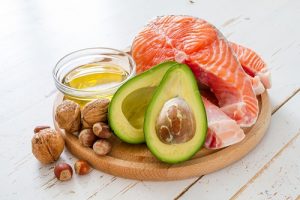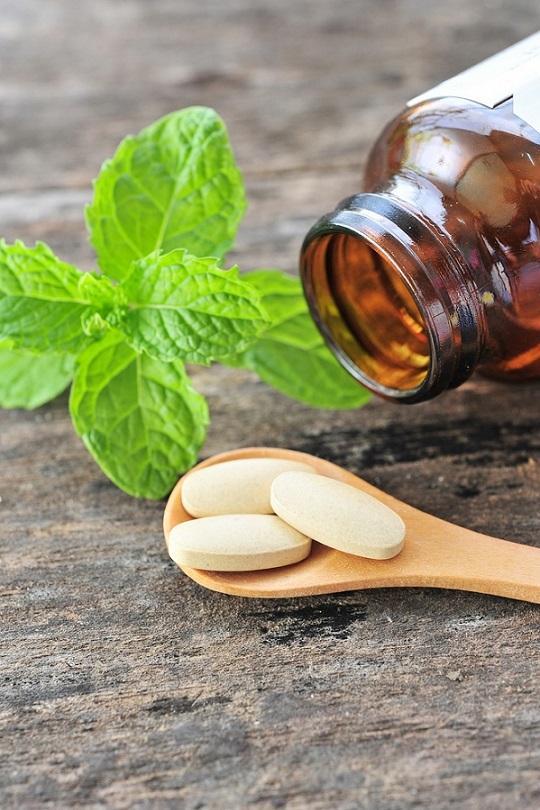
Winter Blues
Winter is on its way, bringing with it the cold and flu season, so it’s extremely important to give your immune system a boost so it can fight off those nasty bugs and illnesses – so you stay strong and healthy.
“It is very important to support our immune systems,” commented Katherine Pardo, nutrition team manager at Nutri Advanced, “otherwise we become susceptible to infection from bacteria and viruses – common signs of poor immune function are frequent colds, flu, infections, sores and slow wound healing.”
Good Gut Health
“As over 70% of our immune cells are located in the gut and with the gut bacteria playing an essential role in supporting a strong immune system, it’s imperative we aim to keep our guts nice and healthy this winter,” explains Natalie Lamb, technical advisor for Bio-Kult.
“One potential solution is to top up levels of the gut bacteria via a good  multi-strain probiotic such as Bio-Kult. In one study a multi-strain probiotic taken for three months was shown to significantly shorten common cold episodes and reduce the severity of symptoms.”
multi-strain probiotic such as Bio-Kult. In one study a multi-strain probiotic taken for three months was shown to significantly shorten common cold episodes and reduce the severity of symptoms.”
Julie Lamble, nutritional biochemist and senior nutritionist for Lifeplan Products Ltd, agrees: “Probiotics have a strong role in immune function, since they naturally reside close to our immune cells, lining the intestine. Probiotics are believed to modulate the immune system and help bowel infections.”
Lamb also recommends eating fermented foods to further support the gut: “Fermented foods such as yogurt, kefir and sauerkraut could help to balance the gut flora to support the gut immune system.”
Diet Essentials
To keep your immune system strong you need to feed it the vital nutrients it needs to function, otherwise it is unable to do its job and this is when illness kicks in.
First of all, it’s a good idea to eat a varied wholefood diet high in fresh vegetables. “This will supply a mix of essential nutrients such as zinc, vitamin C, vitamin E and selenium that are well known for supporting the immune system,” explains Lamb.
She also recommends using a mixture of herbs when cooking: “Culinary herbs such as sage, rosemary and thyme are reputed to have additional immune boosting benefits. Include garlic in your cooking too, used for centuries as a natural antimicrobial to fight infections.”
It’s a good idea to increase your intake of protein too: “Eating a diet rich in high quality protein can aid immunity as it has been shown that when bodies lack protein they lose their ability to make antibodies, and immune cells become depleted,” commented Rebecca Goodyear, freelance marketing director of Kinetic.
The types of fats in your diet are also important. Rob Clark, nutritionist at Natures Plus, explains why: “Saturated fats (e.g. butter or lard), trans fatty acids (e.g. margarine or deep fried foods), tend to be pro-inflammatory. While essential fatty acids (EFAs), from fish, nuts and seeds, enhance the function of immune calls and tend to be anti-inflammatory. Aim to increase omega-3 fatty acids from marine fish and healthy nuts and seeds.”
As well as increasing your intake of helpful foods, there’s a number of things you need to avoid too. “It’s just as important to avoid anti-nutrients in the form of processed foods, sugar, chemical additives, alcohol and foods that you are intolerant to,” advises Judy Rocher, nutritional therapist at Rio Trading.
“One of the biggest enemies of the immune system is the amount of sugar that is in the typical Western diet, approximately 150g per day,” adds Tim Gaunt from Natures Aid. “Studies have shown that 100g of refined sugar a day cuts immune function in half for up to five hours following consumption.”
On top of your diet, you also need to watch your water consumption. “You need to look after your liver since this is a key organ in our immune system,” said Lamble, “this means aiding the detoxification process by drinking at least eight glasses of water daily.”
Vital Vitamins
Vitamin and mineral deficiencies can affect immune function, so it’s important to ensure adequate intake – either through diet or supplementation. Nutrients important for immune function include:
Vitamin E. “Vitamin E is a powerful antioxidant to help us fight off infection, it’s found in foods such as almonds, pumpkin seeds and avocadoes,” explains Rocher.
Vitamin A. “Vitamin A enhances white blood cell function, enhances resistance to infection and carcinogens, and helps maintain skin and mucus membrane- which acts as a defence to infection,” said Lamble.
Vitamin C. “Vitamin C is rapidly depleted in times of infection and this nutrient is required for our white blood cells to function properly,” Lamble explains. Gaunt recommends taking vitamin C during recovery from an illness: “Supplements of vitamin C are best used to reduce the duration of the common cold, rather than to prevent them.” This is because vitamin C helps to speed up the time it takes to recover from an infection.
Vitamins B6 and B12. “Vitamin B6 and B12 are required when the immune system is under attack and needed for cell growth and division by white blood cells,” advises Lamble.
Vitamin D. “Vitamin D activates our immune system, stimulating the T cells in our body, those which seek out and destroy pathogens. Vitamin D also signals to T cells to calm down once the pathogens are destroyed,” explains Goodyear.
“Adequate levels of vitamin D, something that seems to be difficult to achieve without supplementation, is vital to support a healthy immune system. The presence of Vitamin D helps to control a gene that promotes the production of an antimicrobial substance called cathelicidin which is used by the immune system to fight infection,” adds Gaunt.
Zinc. “Zinc can become depleted during infection and can help to reduce the severity and duration of the common cold,” explains Lamble.
Jenny Bodenham, nutritionist at Higher Nature, agrees: “Studies suggest that supplementing zinc may not only ward off colds but also speed recovery when taken within a day of the onset of cold symptoms.”